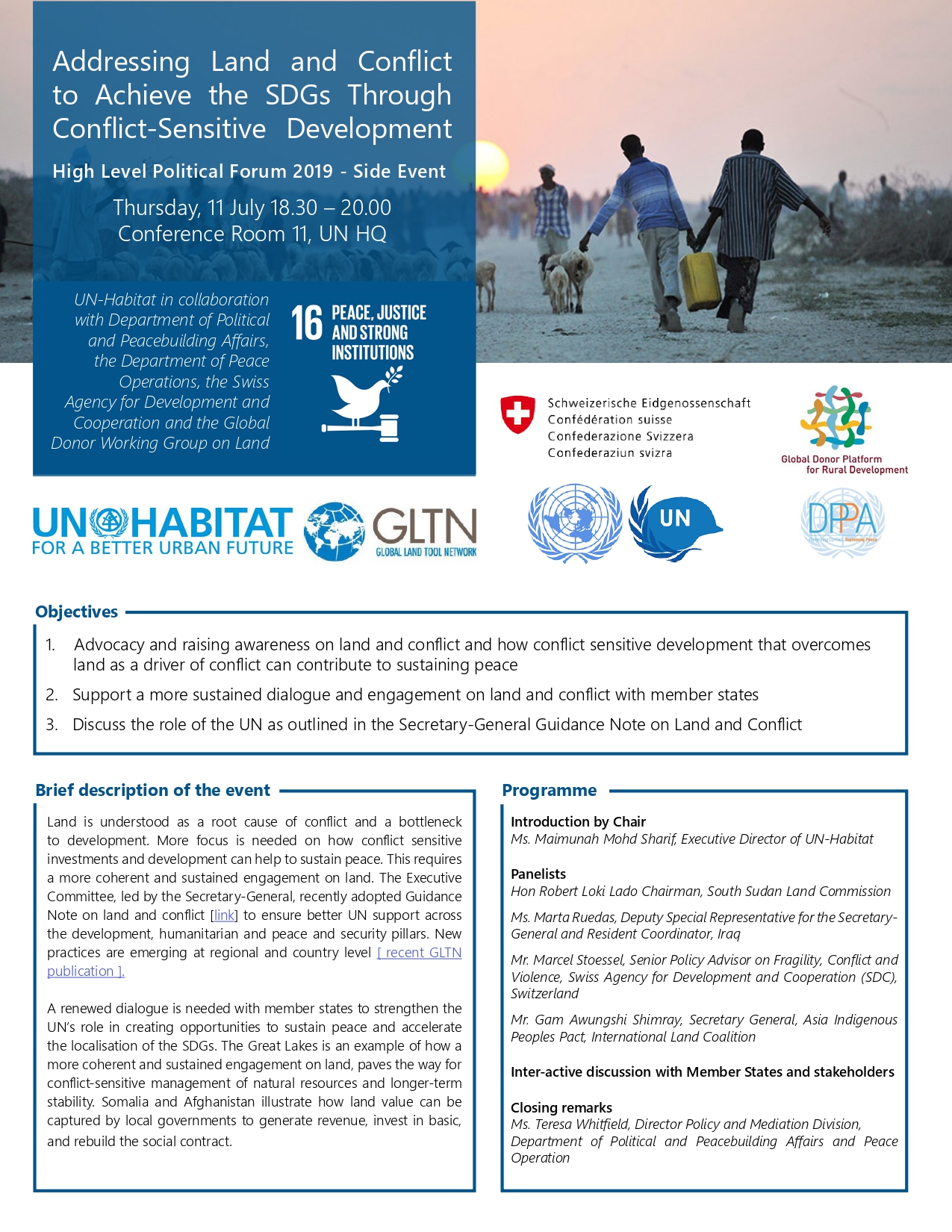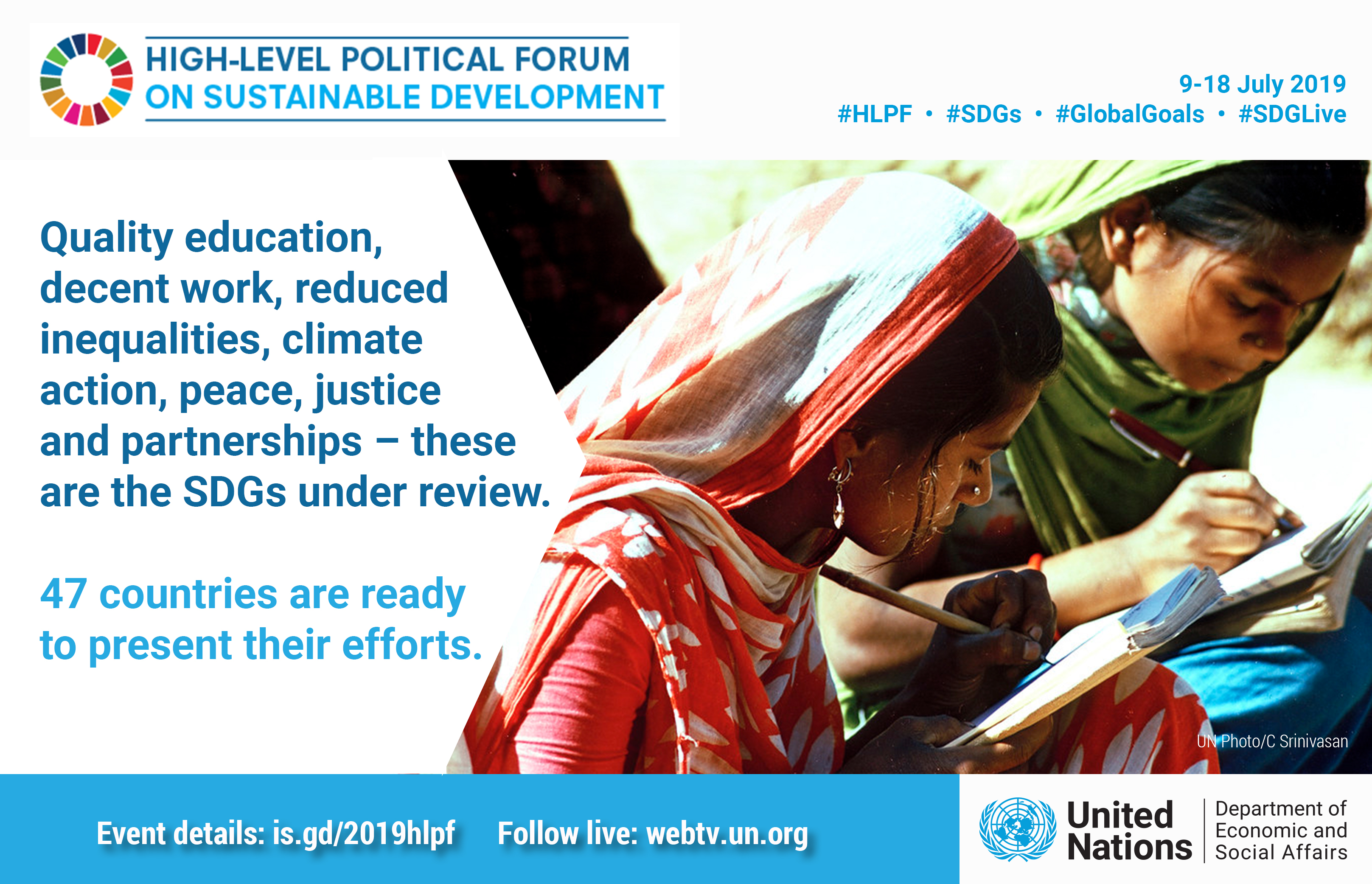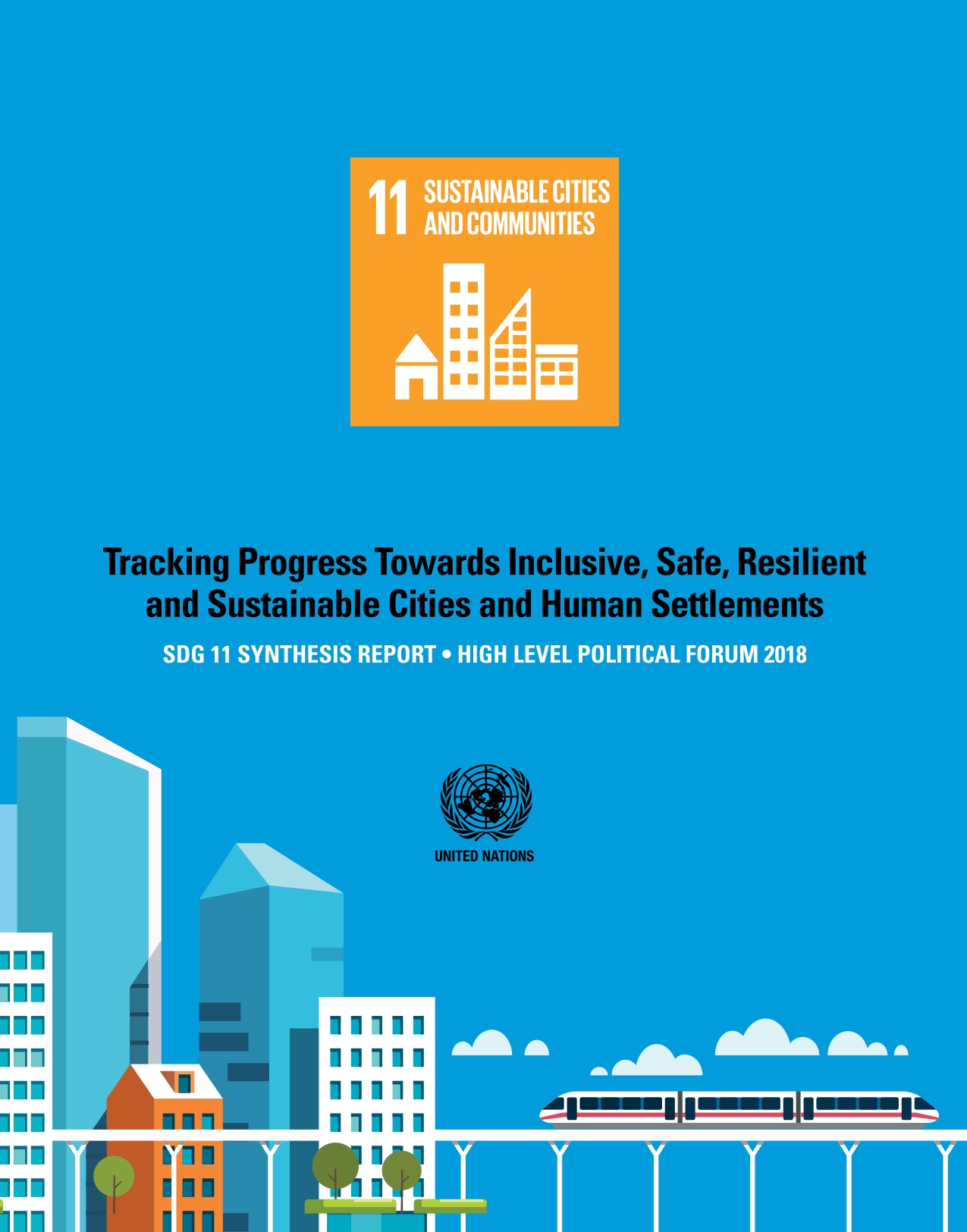9 – 18 July, New York, USA
On 9 July 2019, the largest annual gathering on the Sustainable Development Goals (SDG) implementation begins. The High-level Political Forum (HLPF) on Sustainable Development will run through to 18 July. The event is expected to gather more than two thousand participants to take stock of the world’s progress on the SDGs. The participants will include representatives of Member States, business and civil society leaders, and heads of UN agencies and Programmes. UN-Habitat leadership will also be there to participate in this crucial forumn.
This year, the HLPF will be particularly vibrant, as the world prepares up for the SDG Summit, the Climate Summit and other major events in September. There will be high-level participation with 47 countries presenting their Voluntary National Reviews (VNRs) of SDG progress.
Urbanization and SDGs 4, 8, 10, 13 and 16
Urbanization is happening at a phenomenal rate. By 2030, 60% of the world’s population are expected to live in urban areas. Understanding, harnessing and addressing the opportunities and challenges of urbanization is crucial to the implementation of the 2030 Agenda for Sustainable Development, including Sustainable Development Goal 11 – to make cities and human settlements inclusive, safe, resilient and sustainable.
The concentration of people, innovation, wealth, knowledge, capital, and technology positions cities as power houses that can affect monumental and positive change.
UN-Habitat works for a better urban future. Based in over 90 countries, it promotes the development of socially and environmentally sustainable towns and cities. The UN's new System-wide Strategy for Sustainable Urban Development, endorsed in early May 2019, also prioritses urbanization as a mega trend, and recognises that sustainable urbanization is essential for the attainment of the SDGs.
In the 17 SDGs the global community has made a promise to the world and to future generations, to end poverty and hunger, boost access to health, education and jobs, while protecting our planet from environmental degradation.
And although we can see that people now are living better lives than ever before, it is also becoming evident that the international community needs to step up efforts and make advancements on the goals much faster and at a greater scale. At this years HLPF the theme is "empowering people and ensuring inclusiveness and equality" and a specific set of SDGs will be reviewed in depth.
Sustainable Development Goal 4
Ensure inclusive and equitable quality education and promote lifelong learning opportunities for all
The way cities are planned and governed, with access to education and equitable distribution in mind, can provide better and more inclusive access to all, benefitting low, middle and high-income neighbourhoods, including informal settlements.
Related side event
Higher Education Sustainability Initiative (HESI) 2019
3-6 pm EST, 10 July 2019

Sustainable Development Goal 8
Promote sustained, inclusive and sustainable economic growth, full and productive employment and decent work for all
By 2050, it is projected that 7 in 10 people will live in cities and municipalities. If planned and harnessed correctly, cities are incredible sources of economic growth and prosperity, as they drive innovation, consumption and investment. Planning for gender responsive cities that enable equal participation of women in the labour market is a wise investment, that can add up to USD 28 trillion per year by 2025.
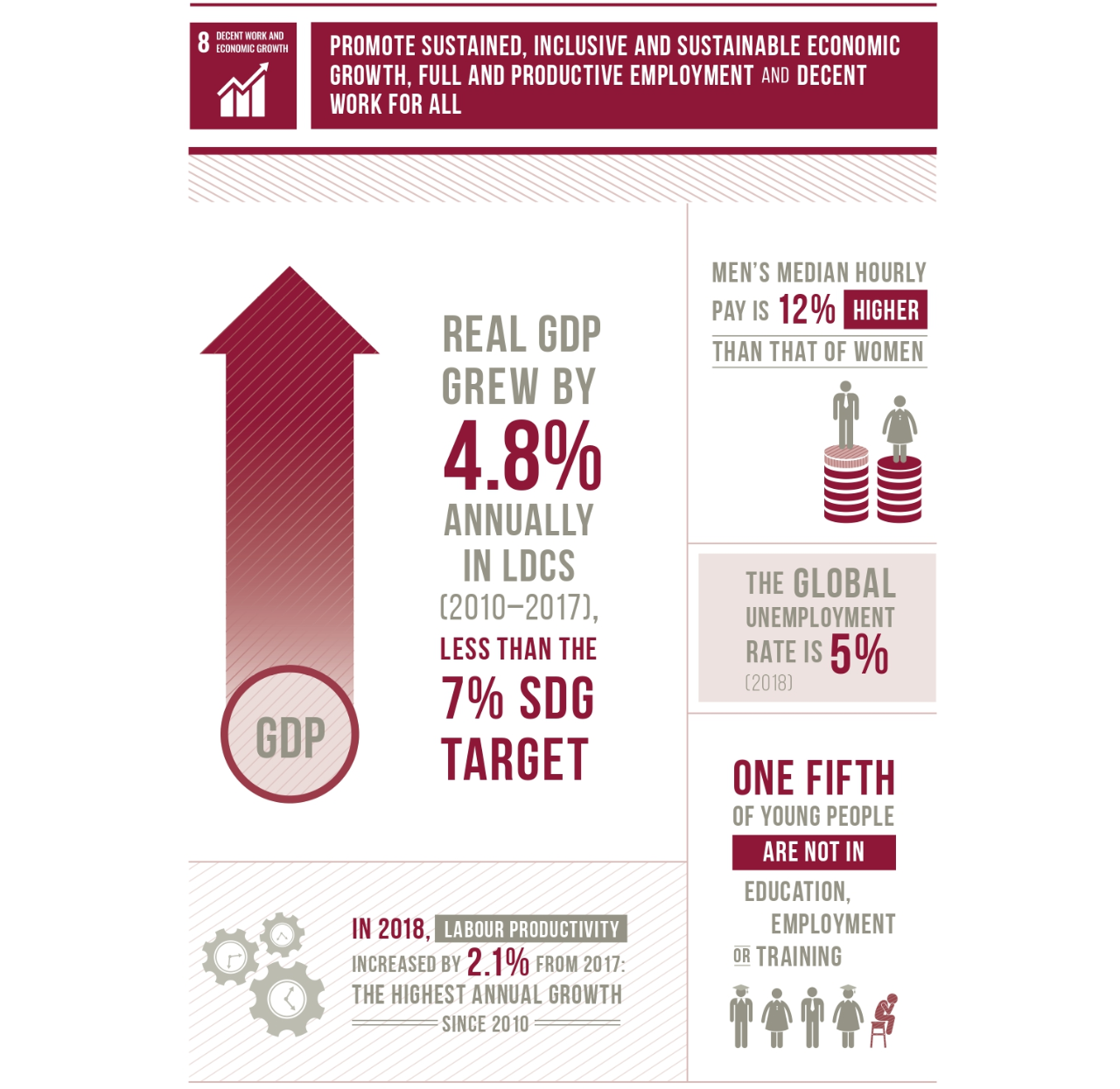
Sustainable Development Goal 10
Reduce inequality within and among countries
Sustainable cities address prevailing inequalities through better urban planning, design and governance, providing better opportunities for employment, affordable housing and accessible transport. Urban designers and policymakers can play an enormous role in laying the ground for potential integration rather than creating intentionally exclusive environments.
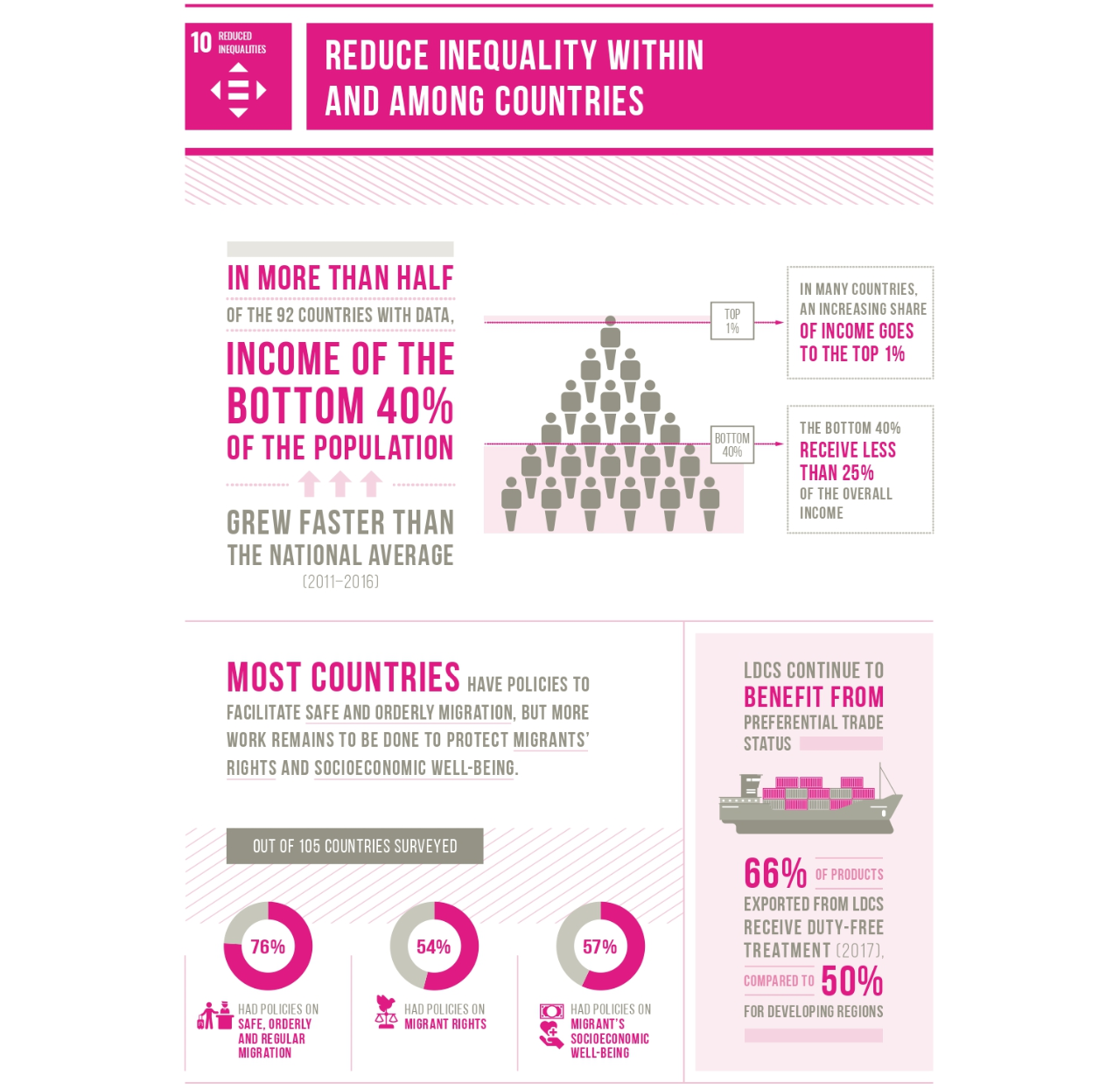
Sustainable Development Goal 13
Take urgent action to combat climate change and its impacts
Sustainable cities provide real opportunities to mitigate and adapt to the effects of climate change, through environmentally and resilient urban design, development and governance.
Related side event
EXTREME HEAT: Reducing the Impact of Heatwaves in the SDG Era
17 July 2019 – 13:15 – 14:30
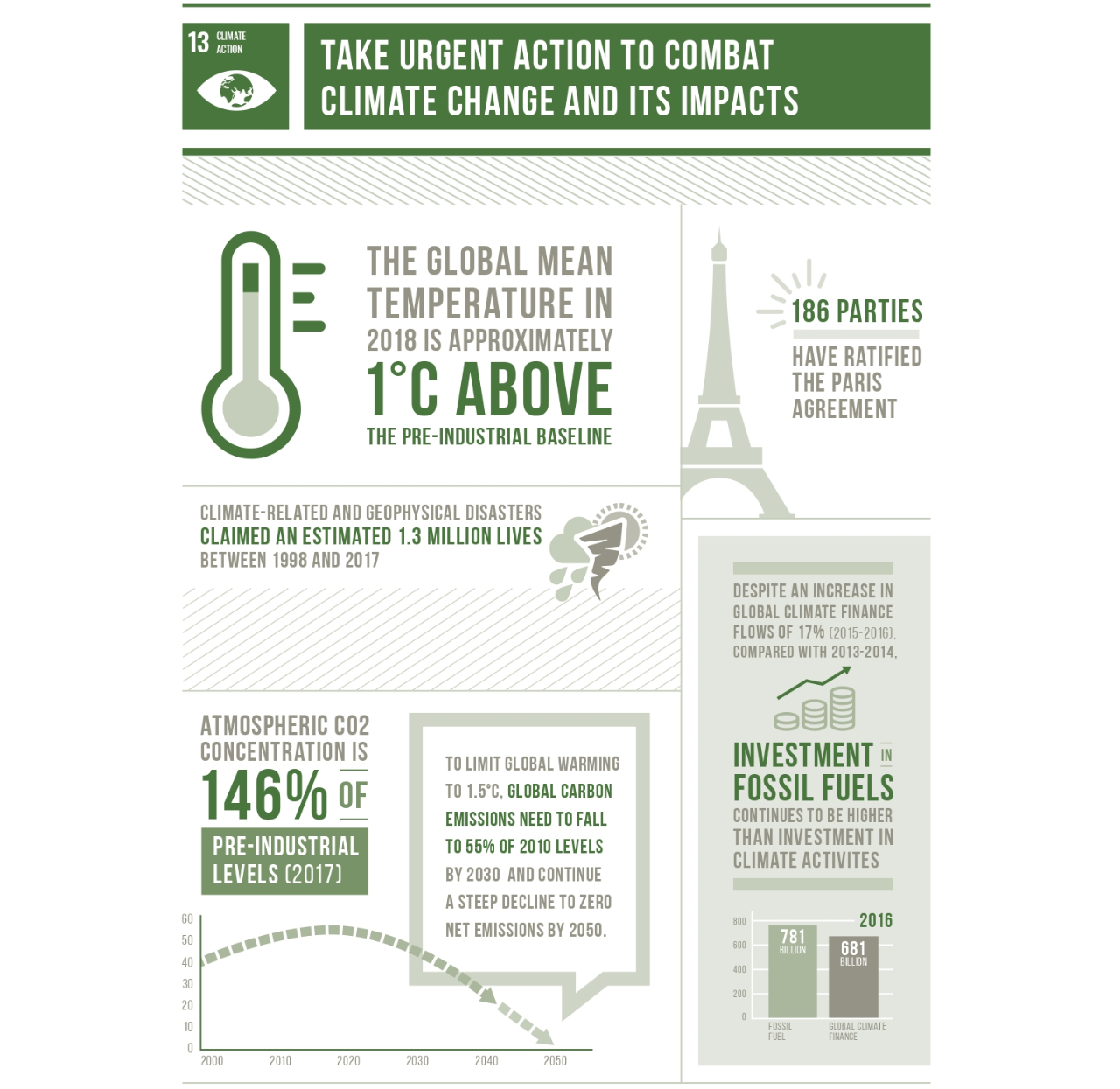
Sustainable Development Goal 16
Promote peaceful and inclusive societies for sustainable development, provide access to justice for all and build effective, accountable and inclusive institutions at all levels
Peaceful, inclusive and sustainable cities rely on the kind of institutions we build in cities. The impact of how we govern our cities as well as how we implement the process of urbanization itself.
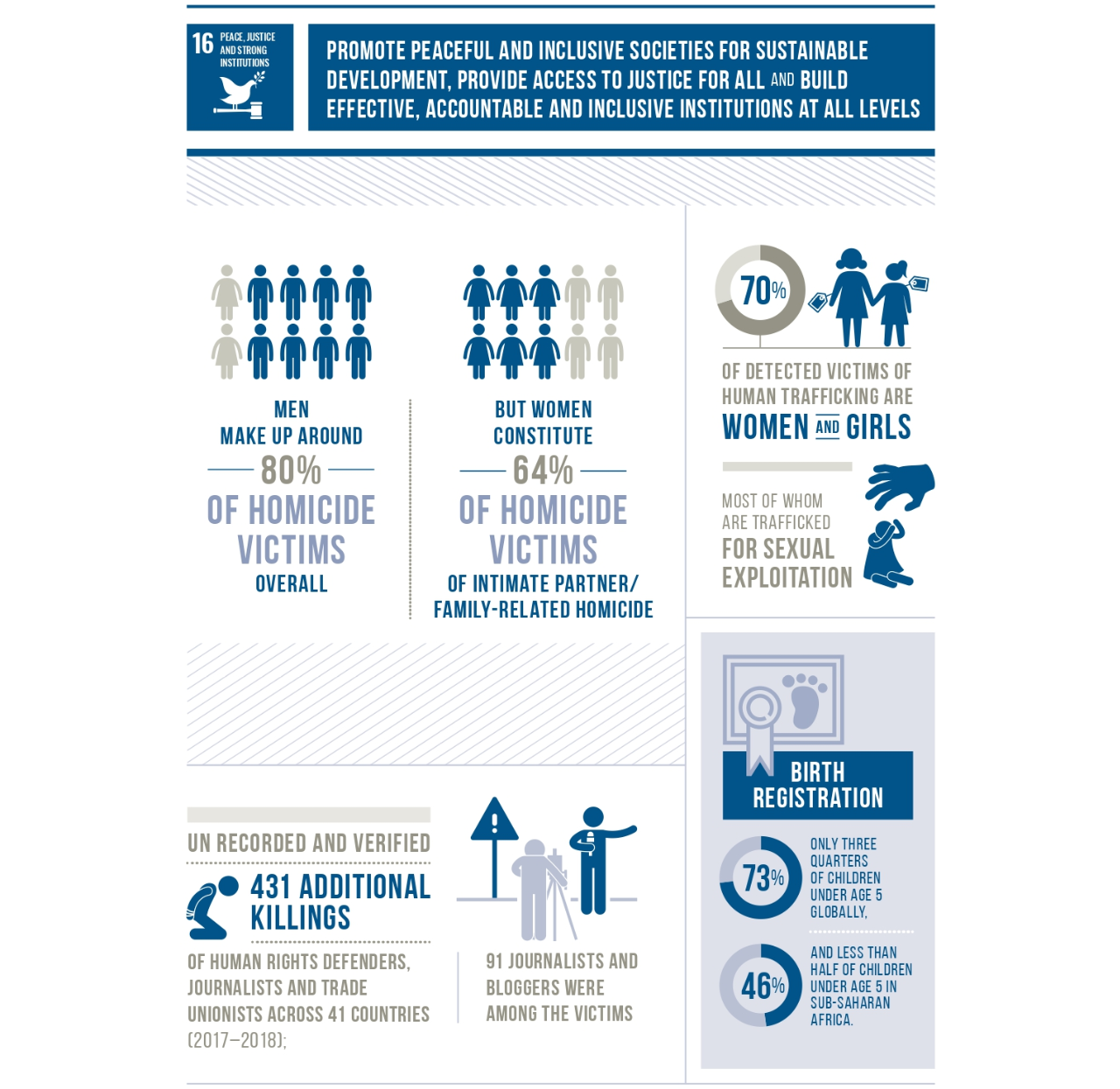
Sustainable Development Goals
Sustainable Development Goals
UN-Habitat Side Event
Addressing land and conflict to achieve the SDGs through conflict sensitive development
Thursday 11 July 18.30 – 20.00, Conference Room 11, UN HQ
Land is understood as a root cause of conflict and a bottleneck to development. More focus is needed on how conflict sensitive investments and development can sustain peace.
